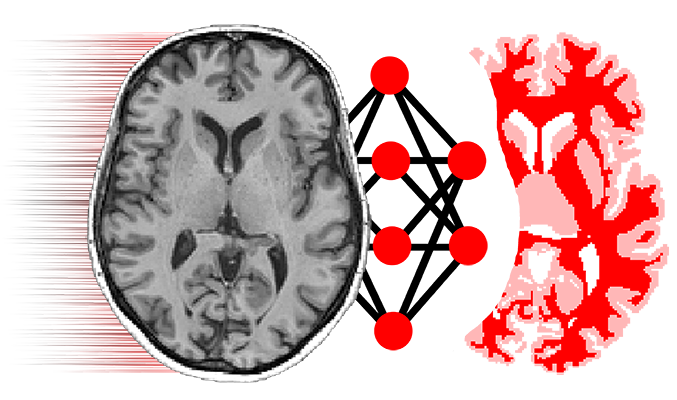Source code for niftynet.layer.base_layer
# -*- coding: utf-8 -*-
from __future__ import absolute_import, print_function
from abc import ABCMeta, abstractmethod
import numpy as np
import tensorflow as tf
from six import with_metaclass
from niftynet.engine.application_variables import RESTORABLE
[docs]class Invertible(with_metaclass(ABCMeta, object)):
"""
interface of Invertible data
"""
[docs] @abstractmethod
def inverse_op(self, *args, **kwargs):
raise NotImplementedError
[docs]class Layer(object):
def __init__(self, name='untitled_op'):
self.name = name
self._op = tf.make_template(name, self.layer_op, create_scope_now_=True)
[docs] def layer_op(self, *args, **kwargs):
msg = 'method \'layer_op\' in \'{}\''.format(type(self).__name__)
tf.logging.fatal(msg)
raise NotImplementedError
def __call__(self, *args, **kwargs):
return self._op(*args, **kwargs)
def __str__(self):
return self.to_string()
[docs] def layer_scope(self):
return self._op.variable_scope
[docs] def to_string(self):
layer_scope_name = self.layer_scope().name
out_str = "\033[42m[Layer]\033[0m {}".format(layer_scope_name)
if not self._op._variables_created:
out_str += ' \033[46m(input undecided)\033[0m'
return out_str
return out_str
[docs]class TrainableLayer(Layer):
"""
Extends the Layer object to have trainable parameters,
adding initializers and regularizers.
"""
def __init__(self, name='trainable_op'):
super(TrainableLayer, self).__init__(name=name)
self._initializers = None
self._regularizers = None
[docs] def trainable_variables(self):
return tf.get_collection(tf.GraphKeys.TRAINABLE_VARIABLES,
self.layer_scope().name)
[docs] def restore_from_checkpoint(self, checkpoint_name, scope=None):
if scope is None:
scope = self.layer_scope().name
tf.add_to_collection(RESTORABLE, (self.layer_scope().name,
checkpoint_name, scope))
[docs] def regularizer_loss(self):
return tf.get_collection(tf.GraphKeys.REGULARIZATION_LOSSES,
self.layer_scope().name)
[docs] def num_trainable_params(self):
n = tf.Dimension(0)
for x in self.trainable_variables():
n += np.prod(x.get_shape())
return int(n)
[docs] def to_string(self):
out_str = Layer.to_string(self)
# try to add trainable variable info to the string
layer_variables = self.trainable_variables()
if not layer_variables:
return out_str
# including name of parameters
out_str += ' \033[92m[Trainable]\033[0m '
out_str += ', '.join(
[v.name.split(':')[0][len(self.layer_scope().name) + 1:]
for v in layer_variables])
# including number of parameters
out_str += ' ({})'.format(self.num_trainable_params())
return out_str
@property
def initializers(self):
return self._initializers
@property
def regularizers(self):
return self._regularizers
@initializers.setter
def initializers(self, value):
assert isinstance(value, dict)
self._initializers = value
@regularizers.setter
def regularizers(self, value):
assert isinstance(value, dict)
self._regularizers = value
[docs]class DataDependentLayer(Layer):
"""
Some layers require a one-pass training through the training set
to determine their internal models, this abstract provides
interfaces for training these internal models and querying the
status.
"""
def __init__(self, name='data_dependent_op'):
super(DataDependentLayer, self).__init__(name=name)
[docs] def is_ready(self):
raise NotImplementedError
[docs] def train(self, *args, **kwargs):
raise NotImplementedError
[docs]class RandomisedLayer(Layer):
"""
The layers require a randomisation process, to randomly
change some of the layer's states on the fly.
"""
def __init__(self, name='randomised_op'):
super(RandomisedLayer, self).__init__(name=name)
[docs] def randomise(self, *args, **kwargs):
raise NotImplementedError
[docs]class LayerFromCallable(Layer):
"""
Module wrapping a function provided by the user.
Analogous to snt.Module
"""
def __init__(self, layer_op, name='from_callable_op'):
super(LayerFromCallable, self).__init__(name=name)
if not callable(layer_op):
tf.logging.fatal("layer_op must be callable.")
raise TypeError
self._layer_op = layer_op
[docs] def layer_op(self, *args, **kwargs):
return self._layer_op(*args, **kwargs)
